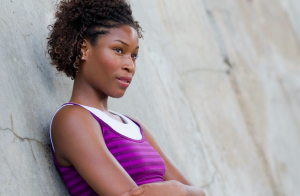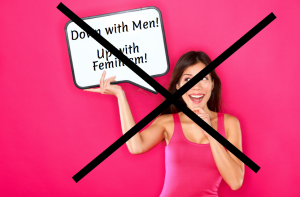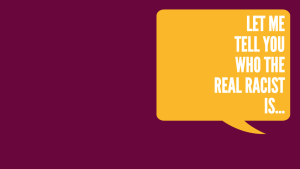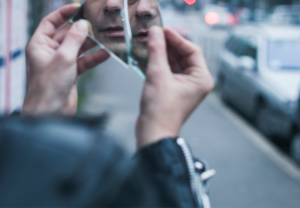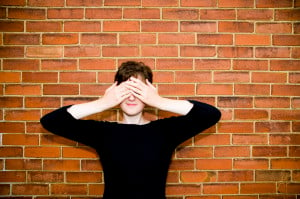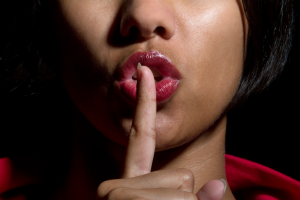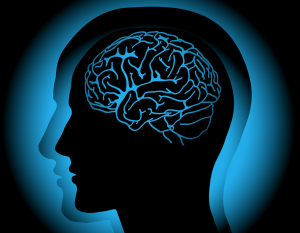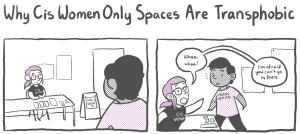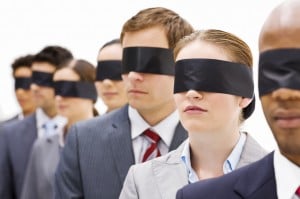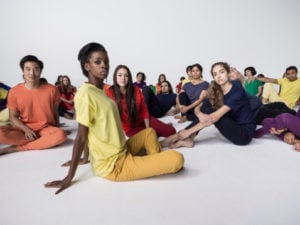With the rising interest in polyamory and other forms of non-monogamy, our community has a unique platform from which to speak and to possibly transform lives.
But there’s also a bit of a problem. In my experiences with the polyamorous community, I have encountered very little that strikes me as ethical.
And I’m not alone in this.
I’ve known people and seen articles about people who are so fed up with the lack of ethics in non-monogamy that they no longer identify with it – and I’m tempted to be one of them.
For a community that prides itself on offering healthier solutions regardless of relationship orientation, the practice of it seems to be more of a burden than a blessing when it comes to certain marginalized people, as pointed out by the article linked above.
There are some deeply ingrained myths about non-monogamy that actually exclude many people with varied experiences – especially those of us who have intersecting marginalized identities (minorities of minorities, as I like to call myself).
I am a genderqueer black person who practices relationship anarchy. I have been non-monogamous all my life, even before I knew the terms for it. I am aromantic, pansexual, left-handed, synesthetic, kinky, atheist, and noetisexual. I have invisible mental and physical illnesses, am neurodiverse, a survivor, poor, and a parent.
I have also had two lovers pass away, one of whom had schizophrenia and the other who had medical illnesses. One was female and the other male; both were black like me.
So when I critique make these criticism of the lack of ethics in ethical non-monogamy, I am coming from 27 years of personal experience, education, and intersection.
Having been at the center of assumptions that nearly cost me my life (like being given the wrong diagnosis and the wrong treatments), I’d like to help unpack those that make the non-monogamous community a rather unethical place to be.
1. Not Everyone Transitions into Non-Monogamy
I very strongly believe polyamory is inherent to my nature. And while nature versus nurture shouldn’t be an issue, my experience of non-monogamy is not the typical narrative.
I never encountered the issues around jealousy, difficult first relationships or abusive partners, or any of the other concerns of those who chose to transition into polyamory. The way I love is different from the “consummate version” — The Triangular Theory of Love – and yet there wasn’t any nonromantic language to describe what I felt.
So I created some.
Yet, to this day, pretty much all of the community’s stories focus on romantic, white, cis people who’ve transitioned into non-monogamy.
Instead of feeling like I’m part of the community, I ended up feeling more alien than ever.
I appear female, and because I’m black as well, it seems to attract attention from those whose fetishes outweigh my humanity.
When I recently stated that, due to several men in the poly community explicitly ignoring my gender, sexual preferences, and desire for friendship by immediately asking for sex or to explore their fetish with me (and in one case actually being raped by one of these men-who then claimed it couldn’t be rape since I was poly), I would pretty much avoid cis and straight men, I was told that my experiences were too political to be shared in that group.
It exploded as others who’d been fetishized empathized and the rest simply wanted to return to talking about how awesome it was to feel compersion for the first time.
So we split off and formed Intersecional Non-Monogamy.
So how do we fix this division? How do we capture more voices? The community needs to allow room and give the mic over to those of us whose non-monogamy has always been their orientation.
There is a lot that we have to share from our unique viewpoints that can actually help resolve many of the common newbie mistakes.
2. Disastrous First Relationships Are Considered Normal, But Aren’t
Speaking of newbie mistakes, how about having terrible first relationships?
I’ve never had the common relationship issues people think are caused by being poly. My experiences and transitions have always been without drama and based on who we actually were, not on taken-for-granted defaults.
Many popular poly stories and guides, like More Than Two, The Game Changer, The Husband Swap-reference at least one non-mongamous experience that either ended in disaster or was extremely unhealthy. This is usually regarded as a problem arising from non-monogamy rather than the influence of mongamous and romantic culture on our practices, as well as arising from the transition.
Even Franklin, who has always been non-monogamous, felt so guilty about his needs and desires that he allowed many of his relationships to end prematurely due to insecurities, veto power, and couple privilege. He remained with his wife far too long in an attempt to cater to her desires and it wasn’t until decades later that his relationships were able to be built on a healthier foundation.
Actual ethics starts at the root and that is where we should begin. These problems need to be addressed before deciding to be non-monogamous instead of afterwards.
In my case and in the case of many like me, being aromantic has helped with issues like jealousy, autonomy, and not accidentally creating hierarchies. My relationship transitions have always been smooth and based on inherent incompatibility rather than unhealthy power dynamics.
Compersion is a natural state instead of something to be learned.
We feel no sexual or emotional ownership over others, and neither do we expect them to cater to our emotions.
We truly value friendship, which is still not very well-understood in polyamory.
I have yet to see consistently healthy polyamorous relationships depicted in the mediums we turn to for the most guidance.
Films like Vicky, Christina, Barcelone feature all the destructive romantic and monogamous ideals that play out in polyamory, without ever once addressing the abusive dynamic.
She Hate Me ends with a happy poly triad, but the journey there is fraught with stereotypes about bisexuals and lesbians. And we only get a few minutes to see how the new triad interacts or whether it remains healthy.
Let’s change that. I’ve already started trying to.
Since I was twelve, I’ve been writing stories about various forms of non-monogamy all across the sexual, mental, health, traumatic, and racial spectrums.
We need more of us to speak up and the room for us to do so.
So much of the conversation is being dominated by mostly cis straight people, many of whom do not have children or chronic illnesses.
And while I have been writing about these intersectional issues for most of my life it is clear that many in the poly community aren’t yet ready to listen.
If it isn’t talking about jealousy, compersion, or dates, it tends to be considered to be too political or divisive to be brought up.
After that incident with the poly group I mentioned earlier, there were marginalized people who left because they did not feel heard.
3. The Reality Behind the Statistic
Most people in the polyamorous community may only be familiar with other minorities via statistics rather than actually listening to us.
People like me seem to only exist as shadows or impossibilities in the community. The thought leaders like Franklin Veaux, Aggie Sez, and Elizabeth Sheff can really only give information based on broad generalizations.
We are talked about as a monolith and not as individuals.
LGBTQIA+ people, survivors of abuse, and the neurodiverse are usually only mentioned in passing, as an afterthought. The information is based on a cookie-cutter picture and is not the lived reality.
All the talk of turning jealousy into compersion, of failed (and rather abusive) first relationships, couple privilege, and of having the money to travel and date have nothing to do with the life I’ve lived.
I’m still exoticized, fetishized, marginalized, and silenced within the community.
I found no stories from people of color, queers, disabled folks, the poor, the aromantic, or survivors of abuse (save for Louisa’s story).
Instead of claiming that all newbies and non-monogamous can use the most popular resources as guidebooks, let us label the information that’s out there as exactly what it really is: information for white, cis, het people to open up their relationships.
Creating and sharing books and other resources based on intersectional analysis by those not in positions of power will go a long way towards opening up the community’s eyes to the damaging power dynamics they’ve brought with them from the dominant culture.
How about the leaders step back let and let us marginalized people create our own content and speak for ourselves?
Especially in entertainment, we need stories that reflect our own realities. We’re more likely to feel alone and more like to commit suicide or to die from violence.
Having our own possibility models can go a long way towards letting us see our options.
For example, the books in The Cuil Effect Project, my writings on Postmodern Woman, the site Queer Black Voices, and the site Polyamory on Purpose are good places to start if you want to get a feel for the actual experiences of intersectional marginalized identities, emotional intelligence, and healthy relationships versus toxic ones.
Additionally, Aggie Sez is working on a book project called Off The Escalator and there is the Queer Relationships Project, too, both of which deal with non-escalating relationship formations. I’d also like to give a shout out to The Body Is Not An Apology, which shares stories of all types of marginalized people.
4. ‘Drama-Free’ Polyamory Excludes Me
And speaking of health and options: I’d be considered one of those “drama-filled” people polyamorous folks try to avoid, not because I cause drama, but because I encounter so much trouble by nature of my marginalized identities. Being with me requires one to deal with heavy issues every single day.
I’m not the fun type of polyamorous and so am usually avoided.
In practice, “drama free” polyamory ends up meaning that the new person doesn’t come between the established couple, it means they don’t rock the boat, and it usually means parents, differently-abled, and other races are off limits.
It has become an excuse for racism, sexism, and amatonormativity to go unchecked.
Instead of seeking drama-free polyamory, how about we put emphasis on relating to people of all kinds?
Examine the ways in which your privilege allows you to ignore and marginalize the experiences of people who aren’t as well off as you.
If non-monogamy is about freedom, let’s work to make it possible for all us to choose freely without judgment. Let’s all be game changers.
That includes people you think owe you their loyalty, time, and love. It’s not freedom if you own your lovers’ behavior. It’s abuse.
Don’t require those of us who are black or women or queer to behave appropriately by your standards. We’re not creating drama, we’re trying to survive.
In order to address these power dynamics, I created the first ever course on Intersectional Non-Monogamy based on my research and experiences.
5. There’s Community Support Unless You’re Invisible
Those I’ve talked to who feel that they were born polyamorous or who are in minority categories often feel they have nowhere to turn to for advice or information on their experiences.
The community is dominated by tales of horrible first experiences, and no one is reading about healthier ways to go about it. Even the foremost resource, More Than Two, is couple-centric, amatonormative, and glosses over minority experiences.
Most polyamorous events and housing aren’t very child friendly. Being poor, I can’t afford to always leave my kid with a babysitter to fraternize.
I also had no one but my partner to turn to when two of my lovers died. I have a friend with mental and physical health issues who is being made homeless, and yet her calls for help have gone unheeded.
And what about the very real dangers that some of us face for practicing our non-monogamy? Bisexuals, trans people, black women, the neurodiverse and those with disabilities like me are more likely to commit suicide, to be killed, and to be attacked.
I have been raped, stalked, and molested because of ignorance and stigma around polyamory on top of everything else.
When you are already marginalized, being polyamorous or otherwise non-monogamous becomes even more of an excuse people use to treat you poorly.
And if our partners are abusive, it’s much harder to leave because we have fewer resources.
Eventually the only way out looks a lot like death, either by our own hand or another’s.
Polyamorous people say it’s not about the sex and that polyamorous people don’t face discrimination, but that’s just not true if you’re not white and straight. Those of us most likely to face legal or dire situations are also those least likely to receive help.
This is unconscionable. If non-monogamy is supposed to be more ethical then we need real resources that deal with daily life for those of us who don’t have it easy.
Truly ethical behavior addresses sexism, heterosexism, amatonormativity, ablism, classism, body terrorism, abuse, housing, religion, and so on.
Truly ethical non-monogamy will focus on emotional intelligence, rationality, and intersectionality instead of fumbling through the dark or simply developing basic emotional intelligence.
6. Abuse Isn’t a Personal Problem – It’s an Epidemic
The more I read, the more I saw that there wasn’t much advice on what to do when someone actually encounters abuse.
There’s encouragement to have empathy, but as a survivor-of rape, emotional and physical abuse, and multiple suicide attempts – I don’t need empathy, I need safety first and foremost.
And I haven’t found much of either in the community.
There’s this view of victims as somehow bringing on the abuse, of being open to it in some way. My personal story is different. Obviously, as a child I was unable to physically defend myself from violent and sexual attacks, but I never thought any of it was my fault or my doing.
I never felt guilty about what happened to me because I knew I deserved better.
I am the odd combination of having chosen healthy relationships while simultaneously suffering horrific abuse from strangers and acquaintances. I didn’t escape the suicide attempts arising from my physical illnesses and life circumstances, though.
Intimate partner and sexual abuse happens to nearly 1 in 3 people, and is even more likely to happen to bisexual/queer/trans/mentally and physically disabled black woman. One particularly abusive behavior, gaslighting, is actually more likely in polyamory.
The higher likelihood of minorities encountering abuse and partner violence being 1 in 3 tells me this isn’t a personal problem; it’s an epidemic.
The community is focusing on treating the symptoms instead of the deeper causes of these issues. There’s more focus on the victim, rather than the perpetrator and the circumstances that allowed the abuse to occur in the first place. Abuse was never a personal issue for me; it was reflection of an embedded cultural disease.
The only way to eliminate it is to deal with the systems that support it and to understand survivors’ experiences in our own words. That’s why I write my stories from many perspectives as well as my own.
What Community Means
For decades, the thousands of voices in the cuilverse were the only ones to keep me company. For many, community is simply a place to relax and have fun.
For those of us with intersectional identities, having a safer, understanding, and representative community can mean the difference between death and life.
We should feel heard, cared for, and human.
In so many ways, our humanity is the last facet recognized in us.
Let’s truly create a community where it’s the first to be emphasized. If the community really is about not accepting the norms, then let us truly embrace and celebrate our differences.
[do_widget id=’text-101′]
Michón Neal has so many identities they won’t fit here. Ze writes a mix of scifi, fantasy, erotica, and autobiography called cuil fiction about unique people in unique circumstances, with characters running the gamut of non-monogamous and LGBTQIA+ spectrums. That’s right: queer and poly fiction! Ze is currently working on the Cuil Effect project, a ridiculously long tale about healing, absurdity, and all the different ways people interact. You can find more details, sneak peaks, links, and absurdity on hir blog, Shadow in the Mirror. Ze also invented the only class on Intersectional Non-Monogamy and is the co-editor for Postmodern Woman.
Search our 3000+ articles!
Read our articles about:
Our online racial justice training
Used by hundreds of universities, non-profits, and businesses.
Click to learn more


